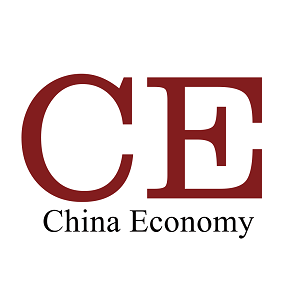BEIJING, June 11 (Xinhua) -- China has renewed its commitment to improving the quality of listed companies as the country, with the world's second-largest equity market in value, continues to deepen market-oriented financial reforms.
"Ensuring validity, transparency and legality of listed companies through multi-pronged measures is at the core of protecting the legitimate interests of investors," said Yan Qingmin, vice chairman of the China Securities Regulatory Commission (CSRC), at a meeting.
Yan listed a raft of efforts already in motion, and vowed to pursue a slew of other measures including cracking down on financial statement fraud, delisting unqualified firms and strengthening deterrence against misconducts.
Calling financial statement fraud a "tumor" in the securities market that defies the fundamental concept of information disclosure, Yan reiterated a tough stance on uprooting the unlawful practice.
Over the past few months, the office of financial stability and development committee under the State Council has reiterated to impose unrelenting penalties on companies and individuals indulging in fraudulent practices.
Since 2019, the CSRC has probed 22 listed companies for financial statement fraud, and administrative penalties were imposed on 18 firms following investigations.
The new securities law, effective since March 1, has raised the cap of cash penalty for fraudulent issuance of bonds and stocks from 600,000 yuan (about 85,000 U.S. dollars) to 20 million yuan while doubling that for insider trading, which analysts say will help reduce market breaches and sift out unqualified companies.
Disgraced companies, along with underperforming ones, will face delisting to make room for investment-worthy firms, as the CSRC vowed to perfect the criteria for delisting and streamline the procedure in mid-May.
China has seen a record high of 22 firms delisted in the first five months of this year, among which seven were delisted after their shares had been traded below face value for 20 consecutive days.
Analysts said the rise of such delisting cases this year indicates that the market is playing an increasingly decisive role in allocating resources.
Many companies that were delisted for trading below face value had devised tricks to secure funds from investors, which ran contrary to the goal of nurturing companies with strong business performance, said Yin Zhongli, a researcher with the Chinese Academy of Social Sciences.
In its push for transparency and openness of the capital market and to forestall unlawful practices, China has piloted a registration-based initial public offering (IPO) system that centers on information disclosure at the new sci-tech innovation board that opened for trading last July. The system will soon be applied to ChiNext, China's decade-old Nasdaq-style board of growth enterprises.
The registration-based IPO system for ChiNext can improve the quality of listed companies by promoting the survival of the fittest, said Ding Lieming, chairman of Betta Pharmaceuticals Co., Ltd., adding that such a move can help stabilize market expectations and stimulate market vitality.
Industry insiders are calling for even harsher punishments for financial crimes to ensure the effectiveness of the registration-based reform in the long run.
While the new securities law cranked up administrative penalties for certain misconducts, the lack of more fitting punishments under the criminal law could hamper the market-oriented reform of stock issuance, said Zhu Lieyu, head of Guangdong Guardian Law Firm.
Wang Jianjun, president of the Shenzhen Stock Exchange, suggested raising the maximum sentence for fraudulent issuance of stocks and bonds to life imprisonment to effectively prevent such illegal practices.
As the mainstay of China's real economy, listed companies should be honest and respect laws and regulations, said Yan.
By the end of May, China had 3,868 listed companies with a total market value of 59.61 trillion yuan, remaining the world's second-largest stock market.
Firms listed on the Shanghai and Shenzhen stock exchanges expect their cash dividends to reach 1.36 trillion yuan this year, a record high, according to Yan.



